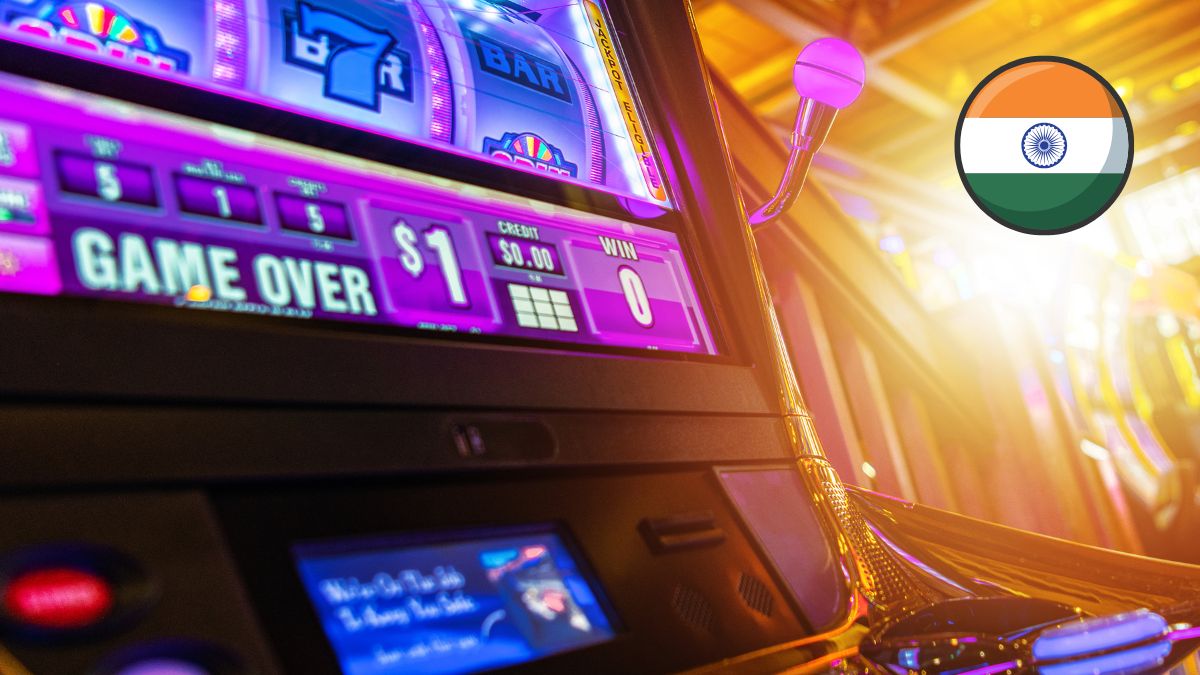7 secrets of online casinos that they don't tell beginners (but you need to know)
It’s a great time to get into casino gambling. Why? Because these days, you don’t need to actually go out and visit brick and mortar casinos to play games like roulette, blackjack, and so on. You can just download an online casino app to your phone and enjoy a world of casino fun at your fingertips.
But, as you might have guessed, there’s a catch. In fact, there are several catches. Online casinos often try to trick new players into thinking they have a better chance of winning big or enjoying free bonuses than they really do. This guide is here to shed some light on the crafty secrets and sneaky tricks of the industry, so beginners won’t feel so overwhelmed or confused.
1. RTP isn’t always what it seems
What RTP really means in practice
When you first get into casino games and start playing the likes of slots or the Mines game, you’re likely going to hear the acronym RTP. That stands for Return to Player. It basically tells you how much of the cash that goes into a machine or game, like a slot machine, ends up going back to the people who play it.
Here’s a quick illustrative example:
- A slot machine has an RTP of 97%
- That means for every $100 put in, $97 goes back out to players
- The house keeps the remaining 3% as its guaranteed profit
The issue with this is that people see high RTP ratings, like 95%, 98%, etc. and they assume they’ve got a decent chance of at least getting their money back, if they play those particular games. But many players actually end up losing way, way more than they win.
This is because RTP isn’t a true reflection of your odds of winning money on a game or machine. It’s calculated over the course of millions upon millions of play sessions. Don’t forget: millions of people play in online casinos nowadays, and the industry is worth hundreds of billions of dollars.
Why casinos prefer you misunderstand it
Obviously, it’s not a mistake or oversight on the part of casinos that RTP is so confusing and misleading. It’s intentional. They want you to look at a game, see a high RTP, and think “I’ve got a good chance of winning cash on that game!” so that you play it. It’s just a way to get you to put more money into the casino, as players feel comfort from seeing higher RTP percentages.
How you can use RTP correctly
To avoid falling victim to the “RTP scam,” don’t let it influence you too much when picking games to play. There’s no harm in playing high RTP games, of course, but it’s best to actually focus on playing games that you’re most likely to win via strategy and smarts, rather than pure chance. In other words, use RTP as a reference, but not some sort of definitive guiding light.
2. Bonuses come with hidden traps
What’s really behind casino bonuses
At a time when the online casino industry is growing really rapidly, casinos have more rivals to compete with. And one of the most effective ways for them to get ahead of their rivals is by offering exciting “bonuses” and new user promos. A typical online casino bonus might claim to offer you free money, free slot machine spins, or deposit matches, for example.
The issue here is that these bonuses often sound way better on paper than they are in reality.
For example:
- A casino might claim to offer a welcome bonus where it matches the value of your first deposit
- So you put in $100 and the casino will give you $100 in “free” money
- However, you don’t get that free cash right away
- Instead, you have to “unlock” it by wagering large amounts of your real money
- To get the full $100, you might have to bet $500, $1,000, or even more of your actual cash beforehand
Why the fine print is so important
On the face of it, casino bonuses almost always sound exciting and generous. But you have to dig below the surface and take a look at the fine print. That’s where you’ll see the real terms and conditions of these promos, and understand the often strict and harsh wagering requirements you need to follow in order to unlock your free stuff.
You might even find that the casino imposes “win limits” or “withdrawal limits” which could make it almost impossible for you to ever actually win anything or get any kind of return from the free cash they offer.
What to check before claiming any bonus
Before you activate any online casino bonus, check the terms and conditions. See what’s involved in actually accessing the free spins or virtual money. Look for bonuses that are easier to access, like those with either low wagering requirements or no requirements at all, as some casinos will actually give you free stuff without forcing you to jump through hoops first.
3. The "near miss" effect is psychological
How slot machines are designed to manipulate emotions
Slot machines are some of the most popular games in both real and online casinos. And it’s not hard to see why. They’re easy and accessible and they often look and sound lots of fun, with cool themes, colorful interfaces, and exciting sound effects, plus the promise of big jackpot wins to rare lucky players.
Slots are also famous for “near-misses,” which is when it looks like you were really close to winning, because you lined up all but one of the necessary symbols. This is a psychological trick, designed to make you think you were close to winning and will get the win you want if you just play a little more. It’s like if you scratch a scratchcard and get two symbols, but not the 3rd.
Why it keeps players coming back
Near-misses often encourage players to play just a little more or have “one more spin” on the slots, because they experience a dopamine rush from seeing the symbols almost line up in their favor. This jolt of emotion is addictive, and they want to experience it again, so they keep playing, but, more often than that, they just keep losing.
How to avoid falling into the near-miss trap
To avoid becoming another victim of near-misses, set yourself time and spending limits before you play. Don’t be tricked by seeing the symbols almost line up; a loss is a loss, no matter how “close” to a win it might appear to be, and play with your head, not your heart; don’t let chemicals like dopamine control your sessions.
4. Live dealers don’t change the odds
Why live casinos feel more trustworthy
Surveys of gamblers most favorite casino games tend to show that players love live dealer games. Those are the ones in which there’s a real person hosting the action, like a live host of a roulette wheel or a live dealer handing out hands of cards. The dynamic nature of having a real person there, plus the aspect of human interaction, gives more of an illusion of fairness.
But the house edge remains the same
The keyword from that previous section is “illusion.” While it might seem like games are fairer with a real person hosting them and not a machine, the truth is completely different. Games like roulette, blackjack, baccarat, etc. all still favor the house, not the player. In fact, having a real person hosting the games might make you lose more, as the pace of gameplay tends to be faster, and players feel pressured to place bets and get involved or miss out on the action.
How to play smart in live casino games
To avoid the trappings of live casino games, the same general rules apply: set yourself clear spending limits and don’t give in to the pressure. Choose games that give you the best possible chances of winning, like blackjack or roulette, and keep your betting under control – don’t let the live host influence your betting decisions in any way.
5. VIP rewards favor high spenders only
How loyalty programs are structured
Lots of online casinos offer loyalty or VIP programs, which claim to reward players who bet regularly and play on the same site or app on a recurring basis. They’ll often have different levels or “tiers” of loyalty, with names like “Bronze,” “Silver,” and “Gold,” with the higher tiers offering the best bonuses.
The issue here is that it actually takes huge amounts of investment of both time and money to ever advance to those high-end, most rewarding tiers.
Why most players never benefit
While a lucky, wealthy few might make it to the top tiers of the VIP program and actually enjoy some valuable benefits, most players never see any tangible benefits from these programs. This is because they simply don’t have the time or money needed to reach those upper echelons, so they’re stuck down at the bottom of the ladder, without any real progression or purpose of being a member.
How to tell if a VIP program is worth it
Before joining or trying to “level up” in a VIP program, look into how it works. Check the small print, and see what each tier actually gives you in terms of bonuses like cashback or faster withdrawals. If it seems restrictive or almost impossible to rank up, don’t bother with it, and don’t waste time or money trying to chase rewards that you’ll probably never be able to access.
6. Some games are designed to feel more "fair" than they are
The rise of fast-paced games: Mines, Crash, Plinko
These days, we’re seeing new, fast-paced games quickly gain popularity on platforms like Casino Scores and push ahead of the established classics, like blackjack and roulette. These games often have really simple designs and super fast gameplay, so you can, in theory, get money really quickly. They’re perfect for playing during lunch breaks or quick five-minute sessions.
But even these games have their issues.
Why the house still wins
The truth is that no matter how easy, fair, or fun a casino game appears to be, it’s always going to give the edge to the house. That’s how casinos make their money. They skew the odds in their favor, so that they win more money than they lose. And that same rule applies to games like Mines and Plinko, too; the casino score is always higher than the player score, and the casino always takes home more cash than the players.
In fact, casinos can make huge amounts from these games, because the rounds are so fast, and players are encouraged to just keep playing and pouring in more cash each time.
Smart strategies for fast casino games
You don’t need to avoid or stop playing games like Mines and Crash. But you should adapt a smart, sensible approach when you play them. That includes careful bankroll control, so you never bet more than you’re prepared to lose. Try out demo versions of these games, too, so you can see how they work and figure out a strategy before risking real cash.
7. Withdrawal delays are often intentional
How casinos slow down your cashout
Lots of casinos use various methods to slow down the rate at which you can actually cash out your winnings and get money into your bank account. They use the likes of withdrawal limits, daily caps, and KYC (Know Your Customer) verification techniques to do this, making you wait whenever you want to withdraw.
Why they do it: reverse withdrawal temptation
Why is this an issue? Well, by making it slow and frustrating to withdraw, they make players more likely to simply leave funds in their account and use them for future bets and games, rather than cashing out. They might even tempt you with extra bonuses and the option to cancel a pending withdrawal so that you can bet again.
How to avoid the trap
Make sure you get all the account verification out of the way before you choose to withdraw any money, to help speed up the process. And don’t give in or cancel any pending withdrawals, even if the casino tries to tempt you. Additionally, read reviews of casinos before signing up, and focus on those that offer rapid, hassle-free payouts.


